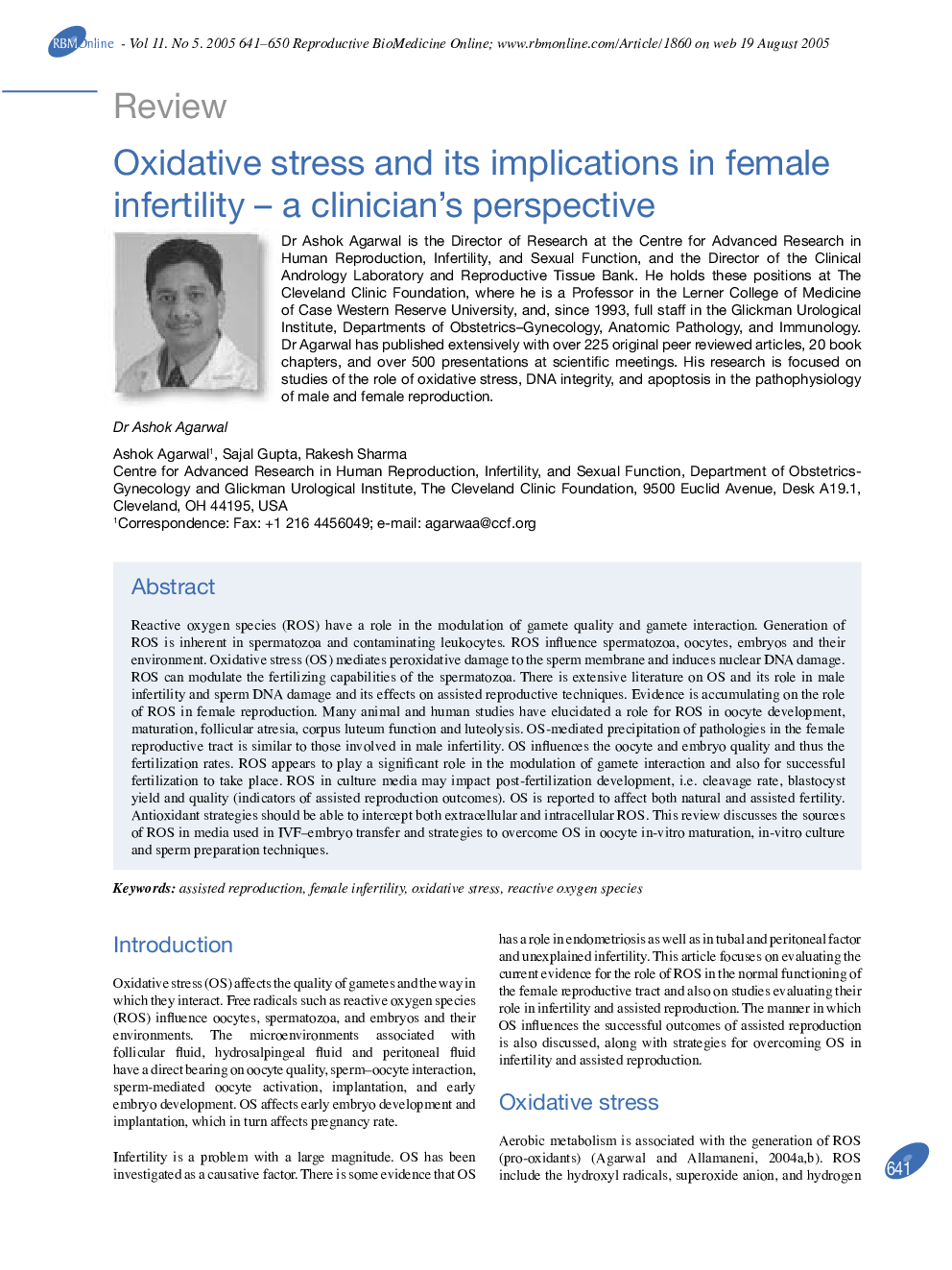| Article ID | Journal | Published Year | Pages | File Type |
|---|---|---|---|---|
| 9334886 | Reproductive BioMedicine Online | 2005 | 10 Pages |
Abstract
Reactive oxygen species (ROS) have a role in the modulation of gamete quality and gamete interaction. Generation of ROS is inherent in spermatozoa and contaminating leukocytes. ROS influence spermatozoa, oocytes, embryos and their environment. Oxidative stress (OS) mediates peroxidative damage to the sperm membrane and induces nuclear DNA damage. ROS can modulate the fertilizing capabilities of the spermatozoa. There is extensive literature on OS and its role in male infertility and sperm DNA damage and its effects on assisted reproductive techniques. Evidence is accumulating on the role of ROS in female reproduction. Many animal and human studies have elucidated a role for ROS in oocyte development, maturation, follicular atresia, corpus luteum function and luteolysis. OS-mediated precipitation of pathologies in the female reproductive tract is similar to those involved in male infertility. OS influences the oocyte and embryo quality and thus the fertilization rates. ROS appears to play a significant role in the modulation of gamete interaction and also for successful fertilization to take place. ROS in culture media may impact post-fertilization development, i.e. cleavage rate, blastocyst yield and quality (indicators of assisted reproduction outcomes). OS is reported to affect both natural and assisted fertility. Antioxidant strategies should be able to intercept both extracellular and intracellular ROS. This review discusses the sources of ROS in media used in IVF-embryo transfer and strategies to overcome OS in oocyte in-vitro maturation, in-vitro culture and sperm preparation techniques.
Related Topics
Health Sciences
Medicine and Dentistry
Obstetrics, Gynecology and Women's Health
Authors
Ashok Agarwal, Sajal Gupta, Rakesh Sharma,
